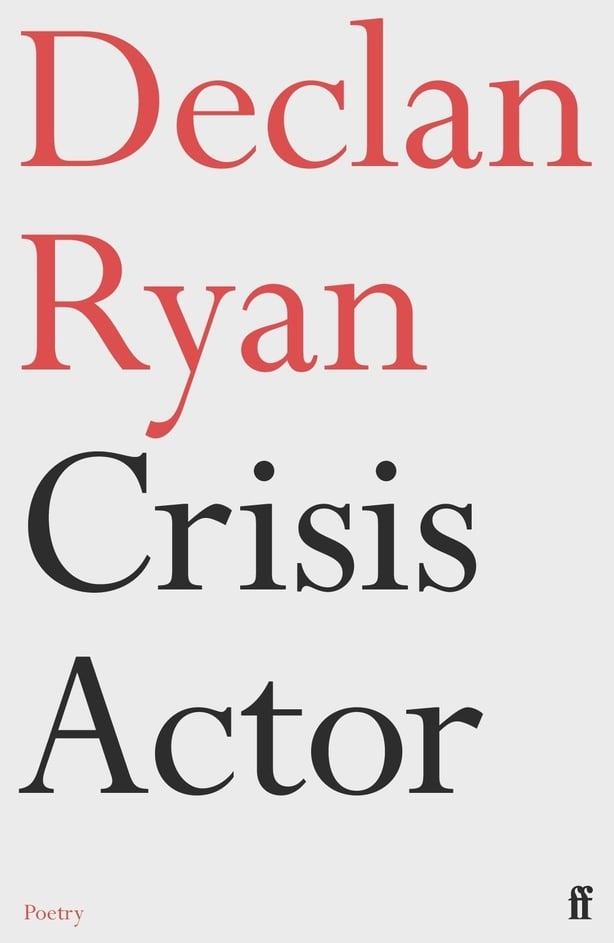In 1964, New-Journalism pioneer Gay Talese wrote a sensational piece for Esquire on two-time heavyweight boxing champion Floyd Patterson.
Published as 'The Loser', the profile describes Patterson in the following terms: ‘He lives in a two-bedroom apartment in the rear of the house and has remained there in almost complete seclusion since getting knocked out a second time by Sonny Liston.’ Though Patterson was just 29 at this point and worth an estimated $8m - $80m in today’s money - he thought that not only was his career over, but that people would ultimately remember him as a failure.
He tells Talese: ‘All you want is a hatch door in the middle of the ring. A hatch door that will open and let you fall through and land in your dressing room… The worst thing about losing is having to walk out of the ring and face people.’
Mayo-born poet and critic Declan Ryan’s debut poetry collection Crisis Actor is similarly fascinated with characters like these: alcoholics, emigrants, faded sportspeople, navvies, farmers, single parents trying to make ends meet. And like Talese, Ryan’s interest in these characters is ultimately about the interrogation of loss. In other words, rather than treat the titular notion of "the loser" as something irrecoverable, Ryan asks why falling down should be treated with shame in the first place. Should success instead not be measured by the willingness of the fighter to get back up?
His portraits and dedications bringing to mind the later lyric of Seamus Heaney.
In The Range - one of many moving poems dedicated to Ryan’s family - he writes: ‘bad luck has clung to your brother/ like an impermeable caul’ and ‘By the time (the doctor) deigned to look for the real reason/ behind your winnowing it was everywhere./ The doctor told you that you’d lose your hair.’
Though the poet does not explicitly address the nature of his relationship with the poem’s subject, by the end of the seven-part sequence it hardly matters. We all know the sucking annihilation that bereavement can cause, and Ryan captures that sense of absence beautifully. There are enough lyrical cues here to allow us a glimpse of how special this relationship is to Ryan, and the fact that in the end he chooses to keep its subject private imparts a universal impulse toward privacy rather than mere alienation.
Elsewhere, his portraits are more open, more expressly in the mode of working-class laureates like Philip Levine and Bertolt Brecht. In Fathers and Sons he channels both an irresistible sympathy with blue-collar toil and the more personal perspective of a child being given what their parents never had - the awe of watching the act of love through provision, making sacrifices for the good of one’s progeny. The father in this poem works so hard that he often comes home to ‘his dinner seething/ in the cooker,/ first compost then char.’ His brief window of downtime marks ‘the absence of anything like pleasure’, though we know he feels that this frugality has been worth it, leading his son ‘in the song/ he made up when he missed me’, putting him to bed and anticipating doing it over again. It is both felt and devastatingly sad, marking Ryan as potentially one of the most gifted elegists of his generation. His portraits and dedications bringing to mind the later lyric of Seamus Heaney.
There are also cameo appearances from Joe Louis and Muhammed Ali throughout Crisis Actor, Nick Drake, John Keats, Welsh poet Alun Lewis, and a line from The Strokes' song Someday. Ryan’s masculine is as at once effortlessly cool and achingly lost, searching for surrogates among the wreckage of barflies and displaced fathers and finding that, in the end, none of them ever quite matches up to the real thing. This book is the real thing, though. The closest I’ve seen to capturing the contemporary Irish masculine experience in verse. A kind of poetic kintsugi; repairing the cracks in our collective psyche with something akin to pure gold.

Crisis Actor is published by Faber


